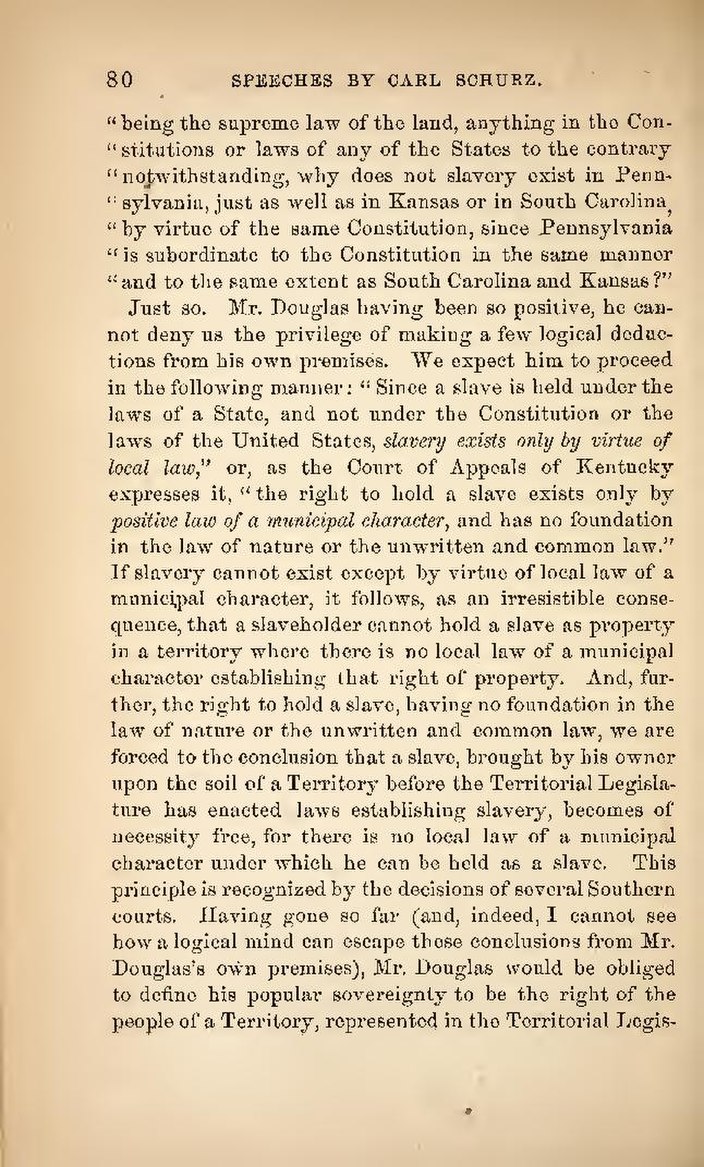being the supreme law of the land, anything in the Constitutions or laws of any of the States to the contrary notwithstanding, why does not slavery exist in Pennsylvania just as well as in Kansas or in South Carolina, by virtue of the same Constitution, since Pennsylvania is subordinate to the Constitution in the same manner and to the same extent as South Carolina and Kansas?”
Just so. Mr. Douglas having been so positive, he can not deny us the privilege of making a few logical deductions from his own premises. We expect him to proceed in the following manner: “Since a slave is held under the laws of a State, and not under the Constitution or the laws of the United States, slavery exists only by virtue of local law,” or, as the Court of Appeals of Kentucky expressed it, “the right to hold a slave exists only by positive law of a municipal character, and has no foundation in the law of nature or the unwritten and common law.” If slavery cannot exist except by virtue of local law of a municipal character, it follows as an irresistible consequence, that a slaveholder cannot hold a slave as property in a territory where there is no local law of a municipal character establishing that right of property. And, further, the right to hold a slave having no foundation in the law of nature or the unwritten and common law, we are forced to the conclusion that a slave, brought by his owner upon the soil of a Territory before the Territorial Legislature has enacted laws establishing slavery, becomes of necessity free, for there is no local law of a municipal character under which he can be held as a slave. This principle is recognized by the decisions of several Southern courts. Having gone so far (and, indeed, I cannot see how a logical mind can escape these conclusions from Mr. Douglas's own premises), Mr. Douglas would be obliged to define his popular sovereignty to be the right of the people of a Territory, represented in the Territorial Legis-
